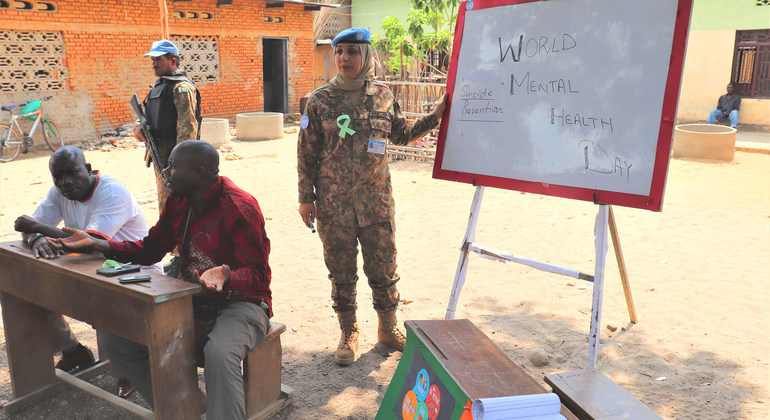
António Guterres was speaking at a high-level event on Mental Health Interventions for Peacebuilding in Conflict and Humanitarian settings.
“Vulnerability and mental health problems are part of our collective human experience and should be treated as seriously as physical health issues, including during a global pandemic”, he said.
Connections
For Mr. Guterres, peacebuilding, mental health and psychosocial support are deeply interconnected. He reminded that “people who have suffered losses, attacks, family separations and gender-based violence, carry grievances and wounds that can perpetuate repetition and cycles of violence.”
The goal of the high-level event was to discuss successes in the field, highlighting best practices and outlining a way forward that could be applied to all areas of the UN’s work.
Examples of promising initiatives to support mental health and psychosocial wellbeing, included programmes in northeast Nigeria, the Philippines, South Sudan and Ethiopia.
The Secretary-General commended the work of the Inter-Agency Standing Committee Mental Health and Psychosocial Support Reference Group, that has developed a wide range of resources during the pandemic, some of which have been translated into more than 140 languages.
‘Vital component’
He also encouraged donors, governments and humanitarian agencies to scale up their investments in mental health and psychosocial support, saying it is “a vital component in supporting peaceful, resilient and inclusive communities and societies.”
Her Majesty Queen Mathilde of the Belgians, spoke at the event, along with Deputy UN chief Amina Mohammed, and Tedros Adhanom Ghebreyesus, Director-General of the World Health Organization (WHO).
Tedros said that one day, hopefully soon, the COVID-19 pandemic will come to an end, but so many that have suffered will not heal so easily. For him, “investment and action are needed urgently”, in bolstering mental health.
“Humanitarian and peacebuilding initiatives that integrate mental health, like those highlighted from Nigeria, Ethiopia, South Sudan, the Philippines, and other countries, are great examples of what is possible,” the WHO chief explained.